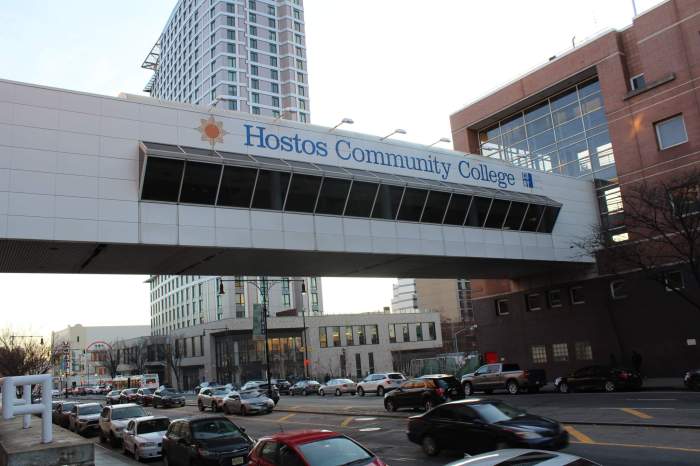For now, ESPA’s Ross Levi is cautious in his Albany prognostications
With this year’s Albany legislative season winding down and just two-and-a-half months left until Primary Day and four until Election Day, the brand new executive director of the Empire State Pride Agenda, New York State’s LGBT lobby, is circumspect about his near-term expectations.
Ross Levi, who has been with ESPA for a decade and became its leader at the beginning of June, spoke with Gay City News a week after the Senate Judiciary Committee tabled the Gender Expression Non-Discrimination Act, a move that could spell the end of hope, in this year’s session, for what had been a key legislative priority.
Asked on June 16 whether GENDA might yet be revived this year or if the Senate would finally follow the Assembly’s lead by passing a gay- and transgender-inclusive school anti-bullying bill, he said, “I will say this: The session is not over. We are going to continue up to the very last minute to do everything we can to move our bills forward, up to and including a law.”
In fact, six days later, the Senate approved the school bullying bill by a 58-3 vote, sending it on to Governor David A. Paterson, a longtime supporter of the measure.
Of course, making predictions about what will happen in Albany is often a fool’s errand, and Levi — who is 43 and lives in Stephenstown, southeast of Albany, with his partner — emphasized why at this moment that may be even more true than usual. The state budget is almost three months late –– and consuming the vast preponderance of political oxygen in the Capitol right now –– so getting legislators to work in bipartisan fashion, particularly in the Senate with its razor-thin 32-30 Democratic edge, is very difficult.
“There is currently an unusually poisonous atmosphere in Albany,” he argued, “where people are saying one thing, even to constituents or advocates, and then doing something else on the floor.”
Levi noted that earlier this month, on the eve of the Senate approving landmark legislation protecting domestic workers’ rights, the Democratic sponsor announced she had five Republican votes in hand. When the vote was taken, however, only one GOP member, a co-sponsor of the bill, stood with the Democratic majority to approve it. That same toxic partisan climate, in Levi’s view, explains the recent committee vote on GENDA — and conditions his view on how to move going forward in the next few weeks and into the fall election season.
GENDA was brought before Judiciary by its chair, Brooklyn’s John Sampson, the leader of the majority Democratic Conference, who expected to prevail in reporting the measure out to the full chamber, with the support of 11 of the committee’s 12 Democrats and one or two of its 11 Republicans. In an embarrassing denouement to a brief but contentious discussion of the bill, the GOP members voted in a bloc, along with the Reverend Ruben Diaz, Sr., a Bronx Democrat, to prevent the bill from advancing.
Senator Thomas K. Duane, the out gay Chelsea Democrat who is GENDA’s lead sponsor, said he was told that two Republicans –– Andrew Lanza of Staten Island and upstate’s George Maziarz –– had committed to Democratic leaders that they would support moving the bill along to the floor. When Sampson initially announced the vote tally, in fact, he said Lanza had voted that way; the Staten Islander was left to explain otherwise.
The break of good faith that Duane and others accuse Republicans of on this matter is the sort of treachery Levi sees as all too common in Albany right now. But in his view, focusing on the details of that day in the Judiciary Committee is, to a degree, beside the point.
“Getting lost in the procedural weeds on this is only marginally useful,” he said. “The threshold question… was whether there would be enough votes to pass this when it got to the floor, and I think that the Judiciary vote tells us that last week the answer was no, or it was certainly going to be a struggle.”
Under Senate regulations –– even if not as a matter of practical politics –– Duane could yet push for a floor vote on GENDA by requesting that it go before the Rules Committee, where it has support from either 11 or 12 Democrats out of the 21 members. From Levi’s perspective, though, the more significant question is whether the measure can be guaranteed of 32 votes should it make its way to the Senate floor.
He did not voice a settled view on that question.
The difficulty of accurately gauging support in the Senate on LGBT issues mushroomed into a major concern after last year’s marriage equality vote –– and will influence the way ESPA proceeds during this year’s election campaigns. In December, when the marriage bill failed 38-24, with eight Democrats siding with the entire Republican caucus in opposition, Duane complained bitterly, saying he had been lied to.
Two freshman Democratic senators who had been endorsed by ESPA in 2008 –– Hiram Monserrate and Joseph Addabbo –– were among the no votes, Addabbo drawing fire by name at the time from Alan Van Capelle, then the Pride Agenda’s executive director. (On the verge of being expelled for a domestic violence conviction, Monserrate was already a political dead man walking when the marriage vote happened.) Duane was cagier than Van Capelle, telling Gay City News the day of the vote that the deception started at the top of the alphabet, an allusion, as well, to Addabbo.
Levi apparently now believes that the faith put into Addabbo in 2008 –– by ESPA, Duane, and scores of LGBT volunteers and donors –– was misplaced.
“We need to be supportive of legislators who are supportive publicly of our issues,” he explained last week. “Legislators who are willing to be co-sponsors of our legislation… We are going to be looking at that column more closely than ever before.”
Fond hopes, winks and nods, and even private assurances of support will no longer be enough if the Pride Agenda enforces a co-sponsorship litmus test for any endorsement.
In a climate where a legislator’s word can’t always be taken at face value, Levi said, “The one thing we’re not seeing is co-sponsors going against their bills.”
If recent votes on LGBT issues have strained the relationship between ESPA and some legislators it hoped it could count on, it has also uncovered cracks in its partnership with Duane. Within hours of the failed GENDA committee vote, the Chelsea senator told the Daily News and other outlets that he had never suggested taking the bill before Judiciary, that it was done at the behest of advocates.
But the key advocates — ESPA and the AIDS services group Housing Works — told Gay City News they were not part of that strategy. Asked to square his claims with the statements from the Pride Agenda and Housing Works, Duane said, “I don’t know how to respond. This would not have been my strategy.” He suggested the question be taken back to ESPA. The following week, Levi reiterated his statement that “nobody asked” the Pride Agenda for its views on going to Sampson’s committee.
Van Capelle, gone from the Pride Agenda four months and now a top advisor to City Comptroller John Liu, responded to the GENDA flap by jettisoning his politesse and striking out at Duane on his Facebook page for his failures on both the transgender bill and marriage equality. Charging that Duane “won’t lift a finger” on GENDA in Albany, he lashed into the senator for not appearing at the vote in Judiciary, where he is not a member, and for neglecting to attend the Democratic Conference meeting where the marriage equality bill was discussed just hours before that vote last December.
“Why do we continue to allow this to happen?,” Van Capelle wrote.
Levi offered a far more conciliatory view of any tensions between ESPA and Duane, saying, “I have a very long and good history with Tom,” and noting that the two arrived in Albany at the same time.
“There are different roles that legislators and advocates play and that will inevitably lead to conflict, and I think that’s okay,” Levi said. “It certainly doesn’t serve us to be petty with each other or to be deceptive with each other. I have reason to be optimistic that we can reach a point where, even when we disagree, we can do so with, in the back of our minds, a fair degree of respect.”
Levi, who first moved to Albany in the late 1990s as legislative director for former Brooklyn State Senator Nellie Santiago and at the Pride Agenda most recently served as director of public policy and education, is proud of the relationships he’s forged there.
“The word I’m hearing from inside the Capitol is that people are happy I am in this position,” he said, noting that as a Santiago staffer more than a decade ago, his office was right around the corner from that of Sampson, the current Majority Conference leader.
Although his background is in Democratic politics and that’s where ESPA has recently put its marbles, Levi, who said he was uncertain whether ESPA would make public his new salary yet, talked about the importance of bipartisanship.
“Certainly to say that Democrats are our friends and Republicans are our enemies is way too much of an oversimplification,” he said. “I don’t think you’d be wrong to say that looking at party platforms, that the Democrats are our more natural allies. But when it comes down to member to member, there is a lot of good work to be done on both sides of the aisle, and there are roadblocks on both sides of the aisle.”
In talking about the LGBT community’s friends in Albany, Levi emphasized that in both chambers of the Legislature, the African-American and Latino caucuses have shown overwhelming support for gay rights initiatives.
“That, in New York, lays to rest the myth that people of color are more homophobic or opposed to marriage equality than anyone else,” he said.
Looking beyond the marquee issues — marriage, transgender rights, and school bullying — that have dominated LGBT political discussion in New York, Levi emphasized the importance of social justice issues. He pointed to other Pride Agenda initiatives, such as an LGBT social services network that has received more than $50 million in state funding dating back more than a decade and its advocacy of a policy that ensures that transgender youth in the juvenile justice system can wear clothes and be called names appropriate to their gender identity.
“It is ironic and frustrating that the Pride Agenda talks about these victories, but all the press and even the community talk about is the vote on marriage,” he said. “And we are accused of only caring about marriage equality.”

































